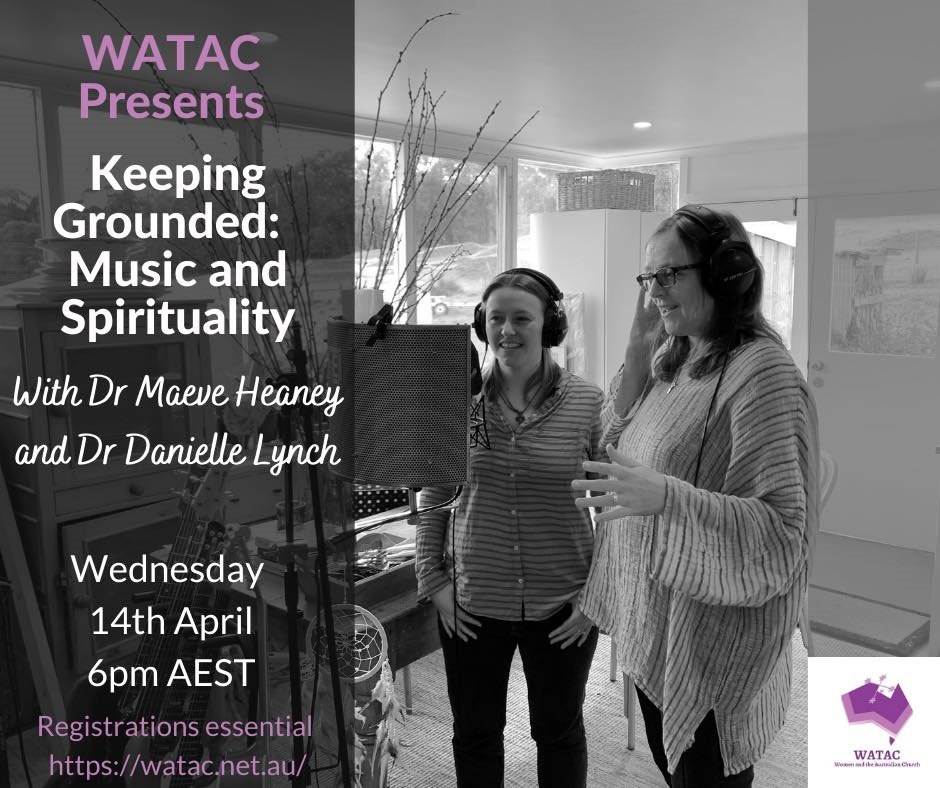A Silence in the Noise: Where Music Meets Spirituality and Faith
A thread https://abs.twimg.com/emoji/v2/... draggable="false" alt="⬇️" title="Pfeil nach unten" aria-label="Emoji: Pfeil nach unten"> http://danielleannelynch.com/2021/04/30/a-silence-in-the-noise-where-music-meets-spirituality-and-faith/">https://danielleannelynch.com/2021/04/3...
https://abs.twimg.com/emoji/v2/... draggable="false" alt="⬇️" title="Pfeil nach unten" aria-label="Emoji: Pfeil nach unten"> http://danielleannelynch.com/2021/04/30/a-silence-in-the-noise-where-music-meets-spirituality-and-faith/">https://danielleannelynch.com/2021/04/3...
A thread
This month, I have had some great conversations with many people all over the world around the importance of music in exploring, understanding, deepening, broadening, and destabilising our experience in other areas of life.
Here& #39;s a reflection on just two of the events that inspired these conversations which are, gladly, ongoing, in different forms!
Who I Am: Queering Theological Borders and Boundaries in Song
Who I Am: Queering Theological Borders and Boundaries in Song
I presented at SST, the UK theology conference, and managed to attend many of the papers with a few late nights and early mornings! I explored the way music destablises the expectations of the theological process and the ways in which theology is presented.
I reflected that in my own education I had been taught to follow a particular way of presenting academic work in theology, and that presenting it in music did not really become an option in my thinking until I was no longer bound to the written and unwritten rules of…
…theological expression within a tertiary institution. I have come to think that perhaps the most important theological work I can do is in song because it is a much more accessible form to a broader range of searchers.
The particular way in which music acts on us as embodied beings in the present as it is experienced gives us the possibility of thinking in new ways theologically, critiquing theology differently, and bringing a new set of concerns and questions to theology.
Song can contribute to deconstructing harmful and restrictive patriarchal boundaries around our embodied, gendered and sexual lives. “By queering theology, we mean the deliberate questioning of heterosexual experience and thinking which has shaped our understanding of…
…theology, the role of the theologian and hermeneutics.” (Althaus-Reid The Queer God, 2.) Queering theology is work for all of us, whether we identify as queer or not, as we all need to come out, to lay claim to our embodied, gendered, sexual lives beyond patriarchal constructs.
These constructs are the system that it is so easy to exist within without questioning - often we can& #39;t see the wood for the trees!
The hierarchies and categories of patriarchy are ingrained in us such that our very dispositions are sexist, racist, ageist, ableist, to mention but a few criteria by which we often judge human worth!
As Robin DiAngelo says of racism, that you are either racist and knowingly perpetuate racism, are racist and unknowingly perpetuate racism, or are racist and are working to unlearn racism.
There is no option that you are not racist because you have been formed within systemic racism and have learnt it unconsciously. The same is true of the other areas - and once you are aware, it is easier to catch yourself doing it!
So I offered my song Who I Am ( https://open.spotify.com/track/1nuxLkNSABiPIgDziZpkba?si=d9731826480349d9)">https://open.spotify.com/track/1nu... as a musical space in which to think about areas of life in which we don& #39;t fit into the categories. Where do you live & #39;outside the lines& #39; (as Kim-Kort highlights)?
What liminal spaces do you exist within that give you insight into what it is to be marginalised by patriarchal structures? Where do you feel pressure to conform to society& #39;s norms? What would it mean to accept yourself for who you are and recognise that you are enough. Just. As.
You. Are?
If you feel like it, spend 5 minutes with the song pondering the questions!
Keeping Grounded: Music and Spirituality
If you feel like it, spend 5 minutes with the song pondering the questions!
Keeping Grounded: Music and Spirituality
The diversity of presenters in WATAC Presents, the bi-monthly gathering of a community of women for the purpose of formation and building community, offers a broad vision for what it means to live as a Christian community.
WATAC& #39;s goal, to model the inclusive and diverse Church they envision, is one which seems to resonate with many women.
So when Maeve and I were asked to talk on "Keeping Grounded: Music and Spirituality" it was an exciting opportunity to discuss our thought, faith, life, and theology with such a group! The astute questions posed have left me with lots to think about!
How does music bridge the gap for some between doubt and faith? What does the music add theologically in liturgy and what happens when it is out of step with the words? How do we honour (musical) tradition and yet hold it to account for the sake of truth and the future?
What is the implication when the composer of the music has troubling accusations made against them from many parties? We made some initial forays into these interesting questions but all could provoke much lengthier discussion.
Here& #39;s the video of the session, including Maeve sharing my hair styling secrets! https://youtu.be/Wrak5DTKLF8 ">https://youtu.be/Wrak5DTKL...
This thread can be read here: http://danielleannelynch.com/2021/04/30/a-silence-in-the-noise-where-music-meets-spirituality-and-faith/">https://danielleannelynch.com/2021/04/3...

 Read on Twitter
Read on Twitter


